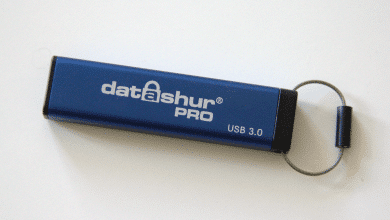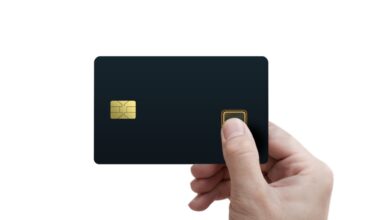
Easter time is traditionally a time of joy, togetherness and, of course, presents. And it’s not uncommon for you to use online shopping as a convenient way to get all those Easter surprises for your loved ones. However, with the increase in online shopping during the festive season comes the risk of being targeted by cybercriminals who use this opportunity to do all sorts of shady things. From phishing attempts and insecure payment methods to the theft of personal data, the threats are varied and pervasive – and our Easter vacation security tips will help you spot malicious intent straight away.
It’s therefore more important than ever to be aware of the potential dangers and know how to navigate the web as safely as possible. In our guide, we give you all the important security tips for the Easter vacations and show you how to recognize trustworthy websites, create strong passwords and protect yourself from fraudulent promotions so that you can enjoy the Easter period without any nasty surprises.
Shop safely online
When shopping online, it’s crucial to shop on trusted and secure websites. This way, you can already reduce a large number of risks, because after all, you are buying from authentic retailers and not from a fake store. You can recognize a secure website by the URL beginning with “https://”, where the “s” stands for “secure”. The presence of a small lock symbol in the address bar of your browser also indicates an encrypted connection. Also check the imprint and contact information of the online store to make sure it is a legitimate company.
Don’t forget to check all customer reviews and testimonials on independent platforms – these can provide additional insights into trustworthiness and customer satisfaction. Be skeptical of offers that seem unrealistically good – they are often more fake than real.
Strong passwords and authentication
A strong password is another line of defense against unwanted access to your accounts. Use a combination of upper and lower case letters, numbers and special characters to minimize the risk of someone guessing your supposedly strong password after just a few attempts. Avoid obvious passwords such as dates of birth or simple word sequences. Using two-factor authentication (2FA) wherever it is offered adds an extra layer of security by requiring you to enter a one-time generated code that is sent to your smartphone (or authenticator app) in addition to your password. This makes it much harder for cybercriminals to gain access to your online accounts.
Security tips for the Easter vacations: Dealing with promotions
Easter promotions and discounts are often extremely tempting, but they can also be traps for fraudsters. Be particularly careful with offers that come by email, especially if you have not actively subscribed to the provider’s newsletter. Check the URL of linked pages and addresses carefully before clicking on them, and never enter personal details if you are not completely sure that the page is what it claims to be. Trust well-known and established online retailers and prefer to go directly to their website via the browser rather than via a link in an email or advertisement.
Recognize phishing attempts
During the Easter period, when online shopping reaches one of its peaks of the year, cyber criminals often increase their attempts to steal your personal data with phishing attempts. And it is often not so easy to unmask phishing attempts as such. Attackers are going to ever greater lengths or now even have AI working for them.
Phishing attacks use the disguise and reputation of trustworthy organizations to gain access to your sensitive data. A classic example is an email purporting to be from your bank asking you to confirm or update your account details, often under the guise of suspicious activity. These emails can seem convincing, but often contain signs that should raise the alarm:
Unusual sender address: The email may have your bank’s name on it, but the email address contains misspellings or unusual domain names such as .de.cx or deutsche-bangk.de. The excesses can be truly curious.
Incorrect language: Grammatical errors and unusual phrasing of sentences are common features, especially because the attackers often use translation software.
Urgency: The message calls for immediate action, often with the threat that your account will be blocked if you do not respond.
Security measures and security tips for the Easter vacations
Protective measures against phishing start with vigilance and healthy suspicion. For example, you receive an email from an “online store” with a fantastic offer for an Easter gift. However, before you click on the too-good-to-be-true offer, keep the following things in mind:
Look closely at the sender and URL: The email claims to be from a well-known online store, but the URL in the email leads to a slightly different web address. That sounds suspicious.
Do not disclose any personal information: Even if the email appears legitimate, it is safer to go directly to the provider’s website rather than via a link in the email.
Use security software: An up-to-date antivirus solution (yes, Windows Defender can now do this too) can detect and block suspicious emails before they cause damage.
Report phishing attempts
If you identify a phishing attempt, it’s a good idea to report it directly. Let’s say you receive an email claiming to be from a well-known parcel service and asking you to click on a link to track a supposedly undeliverable Easter delivery. Instead of clicking, you should:
Mark the email as phishing: Most email services offer the option to report phishing attempts directly, which at the very least will help improve the provider’s spam filters.
Inform the company concerned: If the phishing email claims to be from a specific company, contact them via an official channel if necessary to report the scam attempt.
Inform the authorities: Report the incident to the cyber security authority responsible for your place of residence or the consumer advice center to help other potential victims.
However, always bear in mind in your daily online communication that the other side is not sleeping either and is constantly perfecting all phishing attempts. In the meantime, a completely authentic email from your bank, including a matching sender address and exactly the right design, can land in your inbox. It’s better to be skeptical once more than once too little and, if in doubt, or if your gut feeling tells you that something is wrong, ask the sender directly. But don’t use the contact options in the email, use official channels instead.
Security tips for the Easter vacations: Protecting personal data
While the Easter season tempts many of us to browse the colorful online stores for the perfect gifts, we should not forget that our personal data on the Internet are like hidden digital Easter eggs – valuable to those who find them and therefore worth protecting. Protecting this data when shopping online starts with being aware of where and how you shop. Considering what information we share online is equally important. Stores that request more data than seems necessary for the purchase should urge caution. Not every website that sells Easter eggs needs to know where the rabbit lives.
Payment providers on the World Wide Web
Payment methods are a critical aspect of online shopping. While credit cards and PayPal often offer additional layers of security such as fraud protection, direct bank transfers leave the account more vulnerable. If possible, always use payment services that provide you with additional security and are on your side in the event of fraud. Have you found a great gift in the classifieds and want to pay with the PayPal “Family and friends” option? Think carefully about the risk, because you won’t be able to reclaim the amount if you get half a brick instead of an iPhone.
Secure WLAN networks
Even the most secure network can have some vulnerabilities, especially when it comes to the connection we use to surf the internet. Your own Wi-Fi at home may be secure, but the urge to quickly check your emails or make a last-minute Easter purchase while out and about – be it in a café or at the airport – can put you at risk. Public Wi-Fi networks are often insecure and are a target for cyber criminals. A VPN (Virtual Private Network) can help here by establishing a secure and encrypted connection, even on a public network.
If you also want to play it safe in your Wi-Fi, we recommend using a password that is as long as possible and contains special characters. The currently still common WPA2 is no longer considered 100% secure and can definitely be cracked with the appropriate hardware. And remember: If you are already using WPA3 as your encryption method but there is still an old WPA2 device in your network (or someone you don’t know gives you one for Easter), your Wi-Fi will use the more vulnerable encryption and open the door to attackers.
Securing online banking
The importance of keeping an eye on your own account transactions should also not be underestimated. Regularly checking your credit card statements and bank accounts can help you to quickly identify unauthorized transactions. The faster you react and report it to your bank, the sooner you can avert potential damage. Modern technologies and services, from banking apps to notification systems, make it easier than ever to keep track – so make the most of them.
Security tips for the Easter vacations: Practical protective measures
To navigate the digital world safely and protect yourself and your data from the ever-lurking dangers of the internet, it is important to take a number of protective measures and stick to them meticulously. Exceptions often lead to problems.
Always up to date with automatic updates
Up-to-date operating systems and applications form the basis of all cyber security. Developers regularly release updates that not only introduce new functions, but also close known security gaps. Cybercriminals often use vulnerabilities in outdated software to attack unprotected systems. So by keeping your software up to date, you make it more difficult for attackers to compromise your smartphones, tablets and computers/laptops. So remember to install updates as soon as possible, especially if they contain security patches.
123456 is not a secure password
In the world of passwords, complexity and uniqueness are king. A strong password consisting of a mix of letters, numbers and special characters provides a robust first line of defense against unauthorized access. Avoid simple and easy-to-guess combinations such as dates of birth or the infamous “123456”.
To keep track of various secure passwords, a password manager can be a valuable aid. These tools not only generate strong passwords, but also store them securely so you don’t have to remember every single combination. And thanks to their omnipresence in your browser, you can log in quickly and securely wherever you are. Just don’t forget to either memorize the master key or the main password or store it in the safest possible place.
Double with 2FA
Two-factor authentication provides an additional level of security in our list of security tips for the Easter vacations. Even if an attacker finds out your password, the second level of authentication – for example, a code sent to your smartphone – creates an additional hurdle. This method combines something you know (your password) with something you own (your phone), making it much harder for unauthorized people to gain access to your accounts. Unfortunately, not all website and store operators offer this function yet, but we assume that the number will continue to increase.
Data protection and the handling of personal data
In times of social media and 24/7 online presence, it is easy to disclose more information than intended. Think carefully about what personal details you share online, especially on social platforms. Information such as your address, date of birth or even vacation plans can be used against you by cybercriminals. Also regularly check the privacy settings on your accounts to control who has access to your posts.
Security tips for the Easter vacations: Use social media safely
Using social media has become an integral part of everyday life for many of us, especially during the holidays when we want to share our Easter moments. But while social platforms are a great way to stay in touch and celebrate special occasions, they also pose risks to your privacy and digital security.
- Social networks usually offer a variety of options to control who can see your posts. It’s worth regularly checking and adjusting your settings to ensure that only the people you trust have access to your personal information and photos. Remember that once information is posted online, it is difficult or impossible to retrieve.
- Although it can be tempting to share every detail of your Easter celebrations online, you should consider what information you are revealing to the world. Information about future vacations, your home address or personal identification details can be misused by cybercriminals. Think carefully about what information you share and what should remain private.
- Social media can also be a field for scammers who spread fake competitions, fraudulent promotions or phishing attempts. Be skeptical of offers that are too good to be true and check the source before you disclose personal information, click on links or even upload your passport to prove your identity.
Is your bank account secure?
Finding out that one of your online accounts has been hacked can be a shock at first. But with a clear plan, the damage can often be limited. The first thing you should do is change your passwords immediately, especially for the affected account. It is important to choose a strong, unique password that you do not use for other services. If you have used the same password elsewhere, change it there too as soon as possible. Cybercriminals like to try out stolen login details on different online services in the hope that you will use the same password several times. You can then use the following emergency plan as a guide:
For hacked bank accounts:
- Inform your bank as soon as possible about the incident – preferably directly via the hotline responsible for this. They can help you to block your account promptly to prevent further unauthorized access and support you with the next steps to restore your financial security.
- Check your account movements regularly for unauthorized transactions. Many banks offer notification services that inform you immediately of suspicious activity.
For hacked social media accounts:
- Inform your contacts about the incident so that they do not click on suspicious messages or links that may have been sent from your account.
- Report the incident to the respective social media platform. Most platforms have special help pages for dealing with hacked accounts and can provide instructions on how to restore your access.
Regardless of whether you are dealing with bank or social media accounts, the key is to respond to signs of a hack carefully and promptly to limit the damage as much as possible. And always remember: acting wisely and using available security tools are key elements, along with our security tips for the Easter vacations, to enjoy the Easter period and beyond as carefree and without digital stress as possible.



